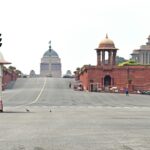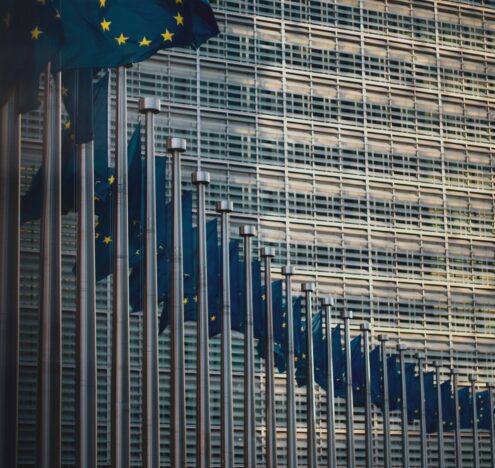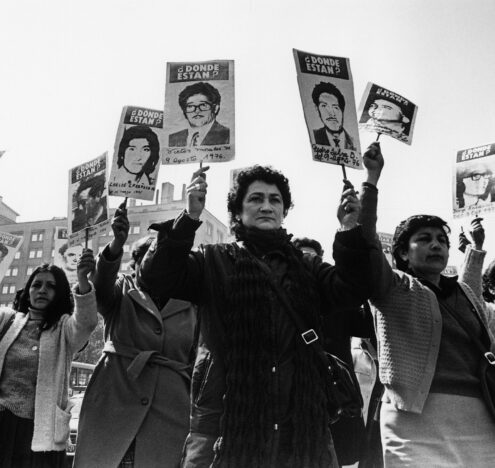At the 2021 Open Government Partnership (OGP) Global Summit last month, the Republic of Korea provided a platform for civil society, government, and other stakeholders to reflect on the progress of OGP in its first decade and to present a vision for the future. The summit’s themes were aligned with the current Co-Chair Priorities, which include strengthening civic space and public participation, tackling anti-corruption, and promoting inclusive digital innovation.
As the largest ever youth generation in history (estimated at 1.21 billion or 15.5% of the world’s population being 15 to 24 years in age), integrating youth voices into the vision for the next decade of OGP commitments is essential, hence the inclusion of a Youth Policy Pitching Session during the Summit. Accountability Lab was proud to play an integral role in the process of creating these recommendations. In 2021, we put out a call for young people (ages 18–35) from OGP countries who were passionate about the current Co-Chair Priorities and were also interested in sharing their policy ideas on these priorities. The process of narrowing down 291 spectacular applications to 15 finalists for the 2021 OGP Summit’s Youth Delegation was no mean feat but we learned some valuable lessons along the way.
The selected delegates far exceeded our expectations and met our goals for the youth delegate program, which included the following: Ideas that were focused, reasonable, and could actually be implemented; representation from diverse communities; outside-the-box, innovative, and accessible ideas; and individuals with public speaking skills and an ability to communicate clearly and effectively. They went on to participate in a three-day virtual open government bootcamp, where they met high-level government and civil society representatives to develop their ideas and share their recommendations around youth inclusion in open government processes.
Ultimately, 26 shortlisted delegates from 14 OGP countries were invited to virtually present policy pitches on the three priorities to a panel of judges at the OGP Summit. The Youth Policy Pitching session provided a platform for the delegates to discuss the future of open government and directly convey their voices to the international community. The recommendations they made were delivered to the incoming chair during the closing ceremony in the form of a booklet.
STRENGTHENING THE CIVIL SPACE AND PUBLIC PARTICIPATION
Under the theme of “Civic Space and Public Participation,” the first group of delegates made four broad policy recommendations. First, they emphasized the need for citizens to be provided with comprehensive access to government information, particularly through ensuring that freedom of information (FOI) laws guarantee that information from government agencies is accessible in all major local languages in that particular country.
Second, they emphasized the importance of ensuring the participation of marginalized groups and grassroots communities in decision-making processes. Governments have a responsibility to ensure that marginalized groups, as well as grassroots voices, have access to public participation in decision-making processes — and civil society has a crucial role to play in helping identify traditionally excluded demographic populations. For instance, there are roughly 1,175,000 people with intellectual disabilities in Mexico. While the country has no restrictions against people with intellectual disabilities voting or standing for election, they have had little to no visibility in politics.
The states that will thrive in the future and retain the trust and support of their citizens are those that understand that with greater access to information and decision-making mechanisms, people on the ground can be an asset rather than a threat or a liability.
Third, they called for the creation of a long-term system for involving a diverse collective of non-government groups and organizations in the OGP processes. Governments and non-government groups and organizations should co-create a system that guarantees the inclusion of youth, academics, grassroots organizations, marginalized groups, and other civil society actors beyond short-term consultations. The pandemic has had strong effects on the conditions of civil space and public participation around the world.
The Rule of Law Index from the World Justice Project reported that, in 2020, countries experienced the largest declines in fundamental rights, constraints on government powers, and the absence of corruption. For example, the biggest decline in the rule of law was seen in Belarus with a loss of 7.5% driven primarily by falling scores in “Constraints on Government Powers” and “Fundamental Rights.” Myanmar followed close behind with a loss of 6.3%, also driven primarily by falling scores in the same two areas.
Finally, they challenged the OGP to offer standard, yet customizable, draft commitments on the disclosure of government data (i.e., open data), transparency of government budgets (i.e., open budget), and accountability of public procurement (i.e., open contracting). The creation of these commitments would develop a populace that is more aware of how and where public money is spent as well as whether budgets reflect grassroots needs and demands.
In 2018, open data was the third most popular, and open budget was the fourth most popular OGP commitment area. Meanwhile, over 70 countries have included open contracting commitments in the past, most of which are focused on information disclosure. For instance, Malawi is using the Construction Sector Transparency Initiative (CoST) standards and creating accessible channels to collect citizen feedback while Elgeyo Marakwet, Kenya is expanding procurement opportunities for youth, women, and people with disabilities.
TACKLING ANTI-CORRUPTION
Under the theme of “anti-corruption,” the second group of delegates made three broad policy recommendations. First, they proposed the development of an index of integrity for public agencies, based on information collected by users of public services, civil servants, academics, and members of civil society. For instance, Integrity Assessments for public institutions in Korea is an Anti-Corruption and Civil Rights Commission initiative established to evaluate the level and causes of corruption within public institutions and to determine policies to prevent corruption. The comprehensive index includes indicators on the integrity level of public institutions assessed by public service users, employees, and policy customers as well as statistics on corruption cases of each institution. Meanwhile, Italy’s Ministry of Economic Development has an online transparency register that includes the agendas of meetings between stakeholders and the ministry. This register has created a digital platform that stakeholders themselves update when they have meetings with the ministry.
Second, they called for the creation of multi-stakeholder councils/boards and the refinement of recruitment and selection mechanisms for public professionals within anti-corruption bodies. Ensuring that agencies perform their work effectively requires the right conditions and incentives to attract and select good employees as well as the establishment of clear paths for developing their careers meritocratically. In 2006, Tbilisi State University in Georgia restructured its administrative staff and dismissed all its academic staff due to rampant, systematic corruption.
Finally, they advocated for the creation of an anti-corruption monitoring panel as well as generational diversity goals for citizen consultation spaces and youth empowerment instruments. A culture of informed social participation is key to consolidating a foundation of integrity in the public sector and requires the development of young leaders who can promote cultures of ethics and anti-corruption in the long term.
PROMOTING INCLUSIVE DIGITAL INNOVATION
Under the theme of ”promoting inclusive digital innovation,” the third and final group of delegates made three broad policy recommendations. First, they called for the creation of a single, mobile-compatible online platform where all government information can be accessed. Creating a single platform that offers information in top local languages that the average person can understand would grant the public access to data and information anywhere, anytime.
A culture of informed social participation is key to consolidating a foundation of integrity in the public sector and requires the development of young leaders who can promote cultures of ethics and anti-corruption in the long term.
Second, they challenged governments to provide digital access and digital literacy training to marginalized groups so they can successfully utilize technology, digital services, and data. For governments to implement fully inclusive digital policies, the needs and requests of marginalized groups, such as women and people with disabilities, must be given more prominence. If marginalized groups cannot get online and/or don’t know how to use online systems, they are much less likely to be able to contribute. Therefore, governments must ensure that digital infrastructure becomes more affordable and accessible.
Finally, they advocated for increased public awareness of open data and the promotion of civic engagement. As a part of their open data initiatives, governments should provide information on who was involved in creating or processing data, how data was reviewed and analyzed, and how the data has affected targeted communities. Independent NGOs and citizen advocacy groups should also be included in this process to ensure that the information is verified and reliable. Once awareness of the benefits and harms open data can cause is established, it becomes a better tool for promoting civic engagement and can be put to use in a way that benefits society.
WHY GOVERNMENTS MUST LISTEN TO THEIR YOUTH
The 2021 OGP Summit marked a decade since government leaders and civil society advocates came together to create a unique partnership to promote transparent, participatory, inclusive and accountable governance. The Open Government Partnership was established on the principle that an open government is more accessible, more responsive, and more accountable to citizens, and that improving the relationship between people and their government has long-term, exponential benefits for everyone. Encouraging and facilitating civic engagement is an essential aspect of this principle and of democracy in general.
Governments across the world are confronted with the urgent need to improve their economy, reform their constitution, strengthen institutions, modernize the public administration, fight corruption, and address civil unrest. For these governments, actively supporting the involvement of citizens in public decisionmaking is not just a luxury but a necessity. As we have witnessed from the dramatic growth in global civil unrest over the past year, punctuated by youth-led movements such as #EndSARS in Nigeria and #BlackLivesMatter in the US, governments cannot afford not to listen to their citizens.
The states that will thrive in the future and retain the trust and support of their citizens are those that understand that with greater access to information and decision-making mechanisms, people on the ground can be an asset rather than a threat or a liability. An active and informed populace can encourage governments to become more efficient, reduce discretionality and allow them to make better decisions based on factual information. Moreover, greater transparency and cooperation can help reestablish trust between the government and its citizens.
Today, 78 countries and 76 local governments — representing more than two billion people — along with thousands of civil society organizations are members of the OGP. OGP is a broad partnership that includes members at the national and local level and thousands of civil society organizations. Through the partnership, these powerful forces work together to co-create two-year action plans with concrete steps and commitments across a broad range of issues. This unique model ensures that civil society organizations or direct citizen engagement has a role in shaping and overseeing governments. Collectively, more than 4,000 commitments have been made globally.
For the OGP to remain relevant over the course of the coming decade, the voices of young people must be factored into all the commitments and how they are implemented across the globe. The creation of the Youth Delegation Policy Delegation Recommendations was one crucial step in ensuring that the voices of young people remain at the forefront of the promotion of open government.
Kibo Ngowi is a Marketing and Communications Officer for Accountability Lab globally based in Johannesburg, South Africa.





















